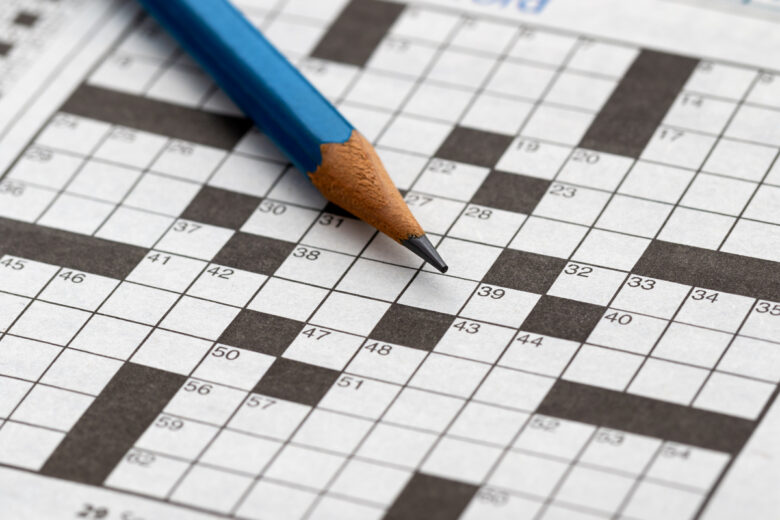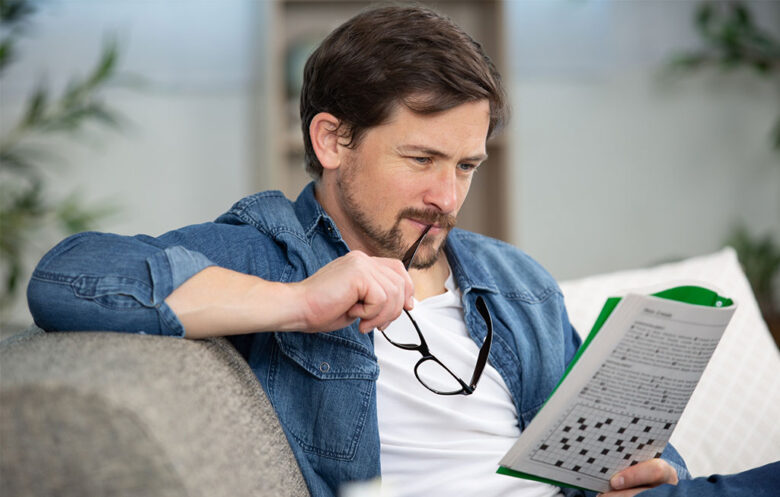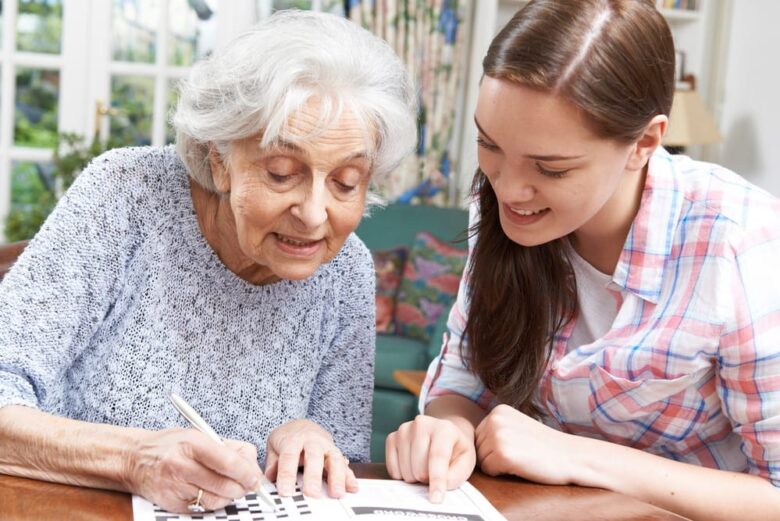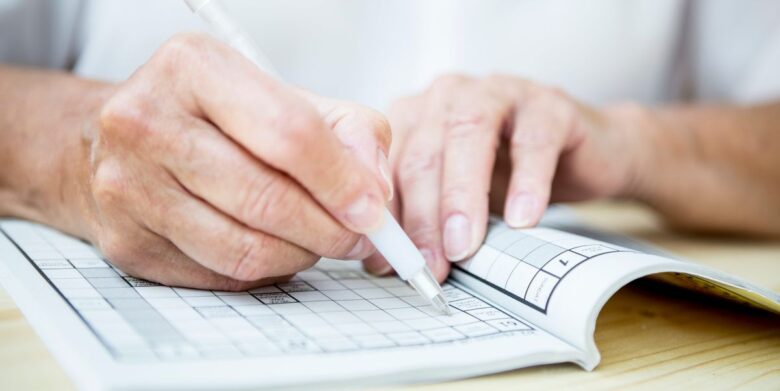Have you ever tried to solve a crossword puzzle and get completely stuck? It can be frustrating, especially if you’re not used to puzzles like this. Crosswords are actually a great way to kill time and exercise your brain, so it’s no wonder they’re so popular. But even if you’re a seasoned puzzler, there are still tips and tricks you can use to get that elusive answer.
Contents
How to Start Solving Crosswords: A quick guide

Source: westchestermagazine.com
If you’re looking for a brain-teasing activity to keep your mind active and entertained, puzzle-solving is the perfect solution. But before you can tackle any crosswords, you first need to learn the ropes. This guide will teach you the basics of solving crosswords, from finding clues to making educated guesses.
The starting point of any puzzle is usually the answers grid (sometimes called a box), which provides information on what each letter in the puzzle corresponds to. The grid often has two halves: one half with all of the answers in it, and one half that’s blank. Clues usually appear in the grid as squares or boxes (sometimes both) that spell out words or phrases.
Don’t be afraid to use the tools at your disposal. Experts recomment using online crossword databases like crosswordanswers911.net to help you find solutions and track your progress
When working on a puzzle, it’s important to take things one step at a time. Start by scanning the grid for clues that match your answer options. Once you find a clue that looks like it might be relevant, try to decipher its meaning based on the other clues in the grid and your knowledge of English grammar and vocabulary. If you still don’t have an answer after trying this approach several times, move on to the next clue.

Source: simplenoteasy.org
Once you’ve found all of the clues in the grid that are relevant to your answer choices, it’s time to start filling in those squares with letters. To make things easier on yourself, try not to fill in every square; this will help conserve your mental energy and prevent you from getting bogged down in minutiae. When you get stuck, it’s often helpful to take a look at the answers grid and see which words or phrases are associated with which letters.
If you still can’t figure out the answer, it’s time to make some guesses. The most important thing when solving crosswords is to be as consistent as possible; if you guess the same letter multiple times in a row, your brain will start to recognize that letter and less effort will be spent trying to come up with an answer. However, don’t overdo it; if you guessed the same letter five times in a row, your brain may start to think that letter is always a good answer.
Once you’ve come up with a few potential answers, it’s time to test them out by filling in some of the squares in the answers grid. If one of your guesses seems to be working well, go ahead and fill in more squares until you have a solution that fits all of the clues in the grid. If you still can’t solve the puzzle, try consulting a dictionary or online crossword solver for help.
Mind the format of the clue

Source: theshoresoflakephalen.com
The clue might tell you what type of word is required (a synonym, an antonym, or a word that is part of the answer), or it might give you a definition. Once you have this information, start working your way backward through the clues looking for words that fit the bill.
Some clues may ask for a word that is spelled a certain way but is pronounced differently. For example, the clue for “Haitian” may ask for the word with an “a” at the end pronounced like “yuh-tuh-nee.” When you see this type of clue, be sure to spell the word correctly according to its correct pronunciation. Additionally, make sure you are using the correct definition for each word in your answer.
Pay attention to wordplay
For example, if you see the clue “A _____ of ___,” the answer might be “a Slideshow of Dogs.” To find the wordplay in this clue, try substituting different words for “of.” For example, “A Gallery of Cats” would be another possible solution. This type of wordplay is common in clues and knowing how to find it can help you speed up your puzzle-solving process.
Another tip is to look for clues that are double meanings or multiple interpretations. For instance, the clue “___ a day” could mean either taking supplements regularly or eating unhealthy foods every day. By trying out different combinations of letters for “a day,” you might be able to come up with a new solution that fits the given context better.
Take your time

Source: oprahdaily.com
It can be tempting to solve a crossword as quickly as possible in order to get it over with. However, taking your time and solving the puzzle correctly is definitely the best way to ensure a good finish. If you rush through it, you may make mistakes that will affect your score. Plus, if you take your time and really focus on each word, you’ll appreciate the clues more and be able to answer them correctly more often.
Use a pencil
There are a few reasons why using a pencil can be advantageous when solving a crossword. For one, it’s easier to erase mistakes. If your ink smudging across the grid lines, it’s much easier to erase than if the mistake was inked in deep. Second, pencils don’t smear when wet so you can continue working on the puzzle even after accidentally spilling coffee all over it. And finally, pencils don’t produce as much lead dust as pens do, which can be annoying when trying to focus on the puzzle while also keeping your work area clean.
Start with the easiest clues

Source: gamesver.com
This way, you won’t get stuck and can move on to more difficult ones once you’ve mastered the basics. Look for clues that are smaller in size or have fewer letters. These clues will be easier for your brain to process and may lead you to the answer faster. Use common words or phrases in the clue as a starting point. Once you’ve found one of these terms, look for similar words or phrases in other clues to help piece together the solution. Check the answers against those given at various online resources. Often, people have answered questions in these publications and can provide helpful hints if needed.
Make sure your spelling is correct
If you make a mistake in your spelling, the clues will not make sense and you will not be able to solve the puzzle. It is also important to use proper grammar when writing in a crossword. If you do not have any knowledge of the rules of grammar, ask a friend or family member to help you out. Do not rush through the puzzle in an attempt to finish it quickly. This will only lead to mistakes on your part and frustration on the part of the puzzle constructor.
Conclusion
Crosswords are a beloved puzzle by many, but few people know how to do them well. With the right strategy and a little bit of practice, you can become a master and enjoy your spare time. Remember it takes time to get a hang of, well, pretty much everything in life, and practice makes it perfect.
